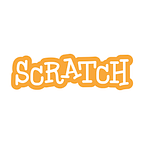<insert your title here>
By Linda Fernsel
I’m afraid I couldn’t decide on a title for this post, so I’ll leave it to you, the reader, to select one of the proposed titles from the list below. (Or, simply come up with one of your own!)
- “Our Adventures Are Stars We Cannot Fathom into Constellations” (Based on the novel The Fault in Our Stars by John Green)
- A Non-Psychologist Makes a Fascinating Discovery
- My Adventurous Childhood
- How I Ended Up Having Such a Cool Life
- Why I Love Scratch
Have one? Good. Now, I’ll continue.
Two weeks ago, I was cleaning up my room, throwing old things away when I stumbled upon some folders filled with wonderful, adventurous memories from my childhood.
Later that day, around midnight, I was suddenly struck by an entirely new perspective. The relics and memories I’d found in my room were like dots — like in Seurat’s Pointillism — which formed a picture visible only when stepping away from it.
Now that I am 19-years-old and on the brink of becoming an adult, I feel that I have gained enough “distance” from these seemingly random “dots.” This discovery has been a fascinating experience, and I feel compelled to share it with others.
But in order to see the “whole picture” of who I am, you must first learn about the the dots:
Teaching
We were barely finished with kindergarten when my best friend and I began inventing educational lessons for each other — and later for my brother, too.
We made up our own mathematical rules because we didn’t know the real rules yet. We tested one another’s spelling skills while simultaneously making horrible mistakes in the task descriptions of the tests. We created quizzes and exercises, requiring the person to imagine and draw figures.
I have always loved sharing my knowledge with others. Today, I continue to do the very thing I did when I was six-years-old by teaching others in a Wiki, a CoderDojo, and Scratch workshops.
Fantasy & Role-playing
As a child, I was always in my own world, constantly role-playing. Until the age of eight or so, my best friend and I role-played in the worlds created by Astrid Lindgren — in my opinion, the best children’s book author the universe has ever seen. But we did not limit ourselves to these worlds. We also invented our own characters, locations, and adventures. We constructed our own ideas of Lindgren’s worlds, just like you might do nowadays on Minecraft. We remixed Lingren’s worlds much like I remix other users’ projects on Scratch.
After the worlds of Pippi Longstocking and Emil of Lönneberga, came a whole new world. In the third grade, we discovered JK Rowling’s Harry Potter. We created our own wizarding world with plenty of additional and imagined details (Hermione had a little sister, Dumbledore married McGonagall, etc.). In our school, you could learn how to perform magic and play Quidditch — the only sport I’ve ever truly loved. We always beat Slytherin.
Writing
Amidst defeating evil in our role-playing worlds, we also wrote our own fan fiction, without even knowing what it was! Though we did not get very far with our books, we improved our writing skills tremendously. In fact, we grew passionate about creating our own worlds, and moved on from familiar characters to unknown stories.
There was the story of the girls living on a farm, taking care of many beautiful horses. Then, there was the story of Franzi and her friends, who discovered a dangerous place named the “Triangle of Shadows.”
“Superhäschen Minimax” was our attempt to write a children’s book. It was about a small rabbit with super powers.
Designing, Drawing, & Computational Thinking
Later, I started to watch Pokemon. My friends and I soon designed our own Pokemon and Pokemon characters, and (surprise!) role-playing started again. I still have a giant folder full of Pokemon sketches and drawings of my first algorithms.
Yes, my first algorithms. Mostly drawn algorithms.
With Pokemon, you can not only fight battles, but also conduct contests. In these contests, you can craft a beautiful performance for your Pokemon to complete. I planned my performances using Pokemon attacks, which are like commands that you give to the computer. I even found if-conditions in my planning.
(Note to self: Create “Programming for Pokemon Freaks” workshop.)
Games & Encountering Stereotypes
Eventually, Pokemon became quite popular at my school. Everyone played it on the Nintendo console. This is how I first encountered non-analog, pre-made games. After my friends convinced me that Pokemon games were not just for boys — got you, evil stereotypes! — I got a game for myself. And more games. And more.
Programming
And at some point, I discovered Scratch, the last dot of my “picture,” and a tool that has allowed me to make my own non-analog games — games like Pokemon. How could I resist?
So, you could also say that all of these “dots” are, in fact, stars of which I had only known the names when I was a child. Now, I see that they are a constellation — the constellation of who I am today.
I encourage you to think about your own childhood adventures, and consider how all of these little stories and memories make up the person that you are today.
No, really, think about it. It’s fascinating.
Based on the original blog post “<insert your title here>”
My name is Linda Fernsel, and I live in Germany. My mission is to bring Scratch to more people, so that young people around the world have a chance to experience the magic of programming. One of my main focuses is to make Scratch resources available in the German language, so that children who do not speak English can still create Scratch projects. I am also a Scratch mentor within the online community.
